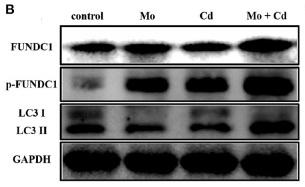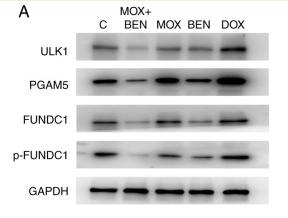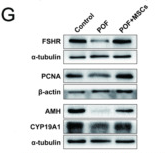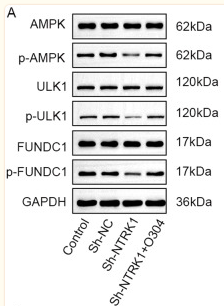Phospho-FUNDC1 (Ser17) antibody - #AF0001
| Product: | Phospho-FUNDC1 (Ser17) antibody |
| Catalog: | AF0001 |
| Description: | Rabbit polyclonal antibody to Phospho-FUNDC1 (Ser17) |
| Application: | WB |
| Cited expt.: | WB |
| Reactivity: | Human |
| Prediction: | Pig, Bovine, Horse, Sheep, Rabbit, Dog, Chicken |
| Mol.Wt.: | 17KD; 17kD(Calculated). |
| Uniprot: | Q8IVP5 |
| RRID: | AB_2846773 |
Product Info
*The optimal dilutions should be determined by the end user. For optimal experimental results, antibody reuse is not recommended.
*Tips:
WB: For western blot detection of denatured protein samples. IHC: For immunohistochemical detection of paraffin sections (IHC-p) or frozen sections (IHC-f) of tissue samples. IF/ICC: For immunofluorescence detection of cell samples. ELISA(peptide): For ELISA detection of antigenic peptide.
Cite Format: Affinity Biosciences Cat# AF0001, RRID:AB_2846773.
Fold/Unfold
FUN14 domain containing 1; FUN14 domain containing protein 1; FUN14 domain-containing protein 1; FUND1_HUMAN; fundc1;
Immunogens
A synthesized peptide derived from human FUNDC1 around the phosphorylation site of Serine 17.
- Q8IVP5 FUND1_HUMAN:
- Protein BLAST With
- NCBI/
- ExPASy/
- Uniprot
MATRNPPPQDYESDDDSYEVLDLTEYARRHQWWNRVFGHSSGPMVEKYSVATQIVMGGVTGWCAGFLFQKVGKLAATAVGGGFLLLQIASHSGYVQIDWKRVEKDVNKAKRQIKKRANKAAPEINNLIEEATEFIKQNIVISSGFVGGFLLGLAS
Predictions
Score>80(red) has high confidence and is suggested to be used for WB detection. *The prediction model is mainly based on the alignment of immunogen sequences, the results are for reference only, not as the basis of quality assurance.
High(score>80) Medium(80>score>50) Low(score<50) No confidence
Research Backgrounds
Acts as an activator of hypoxia-induced mitophagy, an important mechanism for mitochondrial quality control.
Phosphorylation at Tyr-18 by SRC inhibits activation of mitophagy. Following hypoxia, dephosphorylated at Tyr-18, leading to interaction with MAP1 LC3 family proteins and triggering mitophagy.
Mitochondrion outer membrane>Multi-pass membrane protein.
Widely expressed.
The YXXL motif mediates the interaction with MAP1 LC3 family proteins MAP1LC3A, MAP1LC3B and GABARAP.
Belongs to the FUN14 family.
References
Application: WB Species: Mouse Sample:
Application: IHC Species: Human Sample: HDPCs
Application: WB Species: Rat Sample:
Restrictive clause
Affinity Biosciences tests all products strictly. Citations are provided as a resource for additional applications that have not been validated by Affinity Biosciences. Please choose the appropriate format for each application and consult Materials and Methods sections for additional details about the use of any product in these publications.
For Research Use Only.
Not for use in diagnostic or therapeutic procedures. Not for resale. Not for distribution without written consent. Affinity Biosciences will not be held responsible for patent infringement or other violations that may occur with the use of our products. Affinity Biosciences, Affinity Biosciences Logo and all other trademarks are the property of Affinity Biosciences LTD.





